MACSEM 2016 MEETING INFORMATION - March 5-6, Charlottesville, VA -- Updated 2/22/16
Keynote Speaker: Anthony Seeger (Emeritus Professor of Ethnomusicology, UCLA)

VENUE: MACSEM will be hosted by the University of Virginia (UVA) and will be held at OpenGrounds in Charlottesville. 1400 University Avenue. (http://opengrounds.virginia.edu/directions.php)
REGISTRATION: Registration will be available in advance at the MACSEM website and at the door. See the bottom of this page for a Paypal link to register online. Suggested donation is $10 or $20.
LODGING: The Graduate Hotel in Charlottesville, 2 blocks from the meeting site, is open for booking at a group discount for MACSEM members until February 26th. The address is 1309 W Main Street. Look to the Facebook page for other student accommodation options.
SCHEDULE: Click here to download the MACSEM 2016 Program (NEWLY updated 2/29/16)
LODGING for MACSEM 2016 in Charlottesville is the Graduate Hotel:
The Graduate
1309 West Main Street
Charlottesville, VA 22903
http://graduatecharlottesville.com
434.295.4333
Rates: $109 / night for single, double, triple or quadruple occupancy (same rate applies)
Reservations must be made by 5pm on Friday February 26, 2016 in order to secure the discounted rate.
 Please note that this page is an archive of the 2014 annual meeting; the deadlines and information here are now expired. Stay tuned to this site for news about MACSM's 2015 meeting and the call for papers for that meeting!
Please note that this page is an archive of the 2014 annual meeting; the deadlines and information here are now expired. Stay tuned to this site for news about MACSM's 2015 meeting and the call for papers for that meeting!The 2014 annual meeting of MACSEM will take place on
March 29-30, 2014 at the University of Pennsylvania, in Philadelphia, PA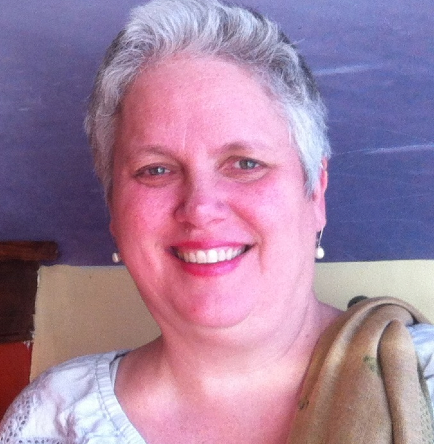
MACSEM 2014 Keynote Speaker: Kate Pourshariati
Keynote Title: FILM SOUND/SOUND FILM: Some preliminary notes on the histories of sound in documentary and ethnographic film.
Download the Full Conference Program (PDF).
ACCOMMODATIONS IN PHILADELPHIA
(recommended by the local arrangements committee)
$139/night @ Homewood Suites by Hilton - University City
4109 Walnut Street
Philadelphia, PA 19104
www.universitypennhotel.com
$224/night @ SHERATON PHILADELPHIA UNIVERSITY CITY HOTEL
3549 Chestnut Street, Philadelphia, PA 19104
https://www.starwoodmeeting.com/Book/MACSEMConference
Keynote Speaker Bio: Kate Pourshariati is a film archivist at the Penn
Museum where she works with a range of culturally and historically
significant motion picture films, dating from 1913 to the 1990s. Kate
has been involved with restoration of (likely) the first documentary
sound film, Matto Grosso, the Great Brazilian Wilderness (1931), the
seminal series Navajo Film Themselves (1966) and Native Life in the
Philippines (1913). In addition to the cataloging, restoration and
digitization of films, she has been working with source communities to
share back the Museum's historic film materials for re-interpretation
and revision. Most recently, she has been curating cultural documentary
screenings at the Museum, including a new occasional series called Live
From the Archives! which consists of films made using Museum archival
footage. Kate studied visual anthropology with several principal
filmmakers of the field; Jean Rouch, Richard Leacock, and Tim Asch, at
Harvard. Among other works, she has written on the film works and
photographs of the anthropologist Frank Speck, for an upcoming
festschrift. She is currently also working with the Margaret Mead and
Gregory Bateson films of Bali and Papua New Guinea for the Library of
Congress.
For a preview or background on the topic of the talk, please visit the Matto Grosso site.
_____________________
More information can be found on
MACSEM's Facebook page.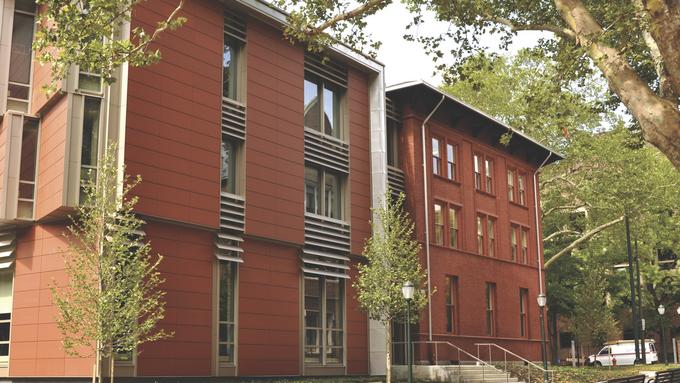
___________________________
Call for papers (deadline now expired):The Mid-Atlantic Chapter
of the Society for Ethnomusicology (
http://ethnocenter.org/MACSEM )
will hold its annual meeting between March 28-30, 2014 at the University
of Pennsylvania, Philadelphia, PA. The Program Committee invites
proposals from ethnomusicologists as well as music scholars working in
related fields, including historical musicology, anthropology, media
studies, folklore, performance studies, and cultural studies. Graduate
and undergraduate students are strongly encouraged to submit abstracts.
MACSEM awards the Hewitt Pantaleoni Prize each year to the best student
paper delivered at the annual meeting.
Options for presentations
include scholarly papers (20-minute presentation,10-minute discussion),
organized panels of three or four papers, poster sessions,
lecture-demonstrations, film/video screenings, and workshops. Paper
proposals should include an abstract of no more than 250 words. Those
proposing panels should submit one 200-word abstract for the entire
panel as well as individual abstracts for each presenter. Please include
with your proposal: the name(s) of the presenter(s), institutional
affiliation(s), title of presentation, format of presentation (paper,
panel, poster, workshop, etc.), A/V equipment requirements, e-mail
address, and phone number.
Please send abstracts by e-mail to:
Fernando Rios (Program Committee Chair) at
frios@umd.edu, with the
subject line: MACSEM 2014 Proposal Submission.
*Deadline:* February 9, 2014 (Early submissions are strongly encouraged!)
Notifications will be made by the end of February.
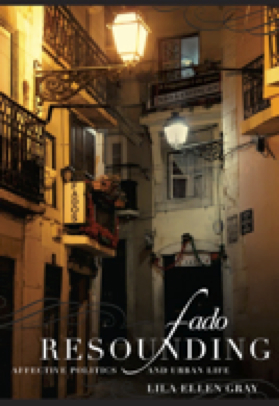
The Center for Ethnomusicology congratulates Professor Ellen Gray on the publication of her book Fado Resounding: Affective Politics and Urban Life (Duke
University Press). This ethnography of fado, Portugal's most celebrated
popular music genre, shows how a musical genre can sediment, circulate,
and transform affect, sonorously rendering history and place as soulful
and feeling as public.
The book's introduction is currently available for preview and free download on Scribd.
"Lila Ellen Gray positions Lisbon's amateur fado scene
in terms of all the contestation about what fado is and where the
action is taking place. This positioning is a unique and valuable
contribution to music ethnography, and Gray does major and convincing
intellectual work arguing for 'amateur' scenes as paths into the deepest
musical and ethnographic understandings of genre, style, performance,
poesis, and the ways that sociality is lived and experienced through
sound."—Steven Feld, author of Jazz Cosmopolitanism in Accra: Five Musical Years in Ghana
Readers
in the USA can receive a 20% discount on the book when ordering
directly from Duke University Press (use code P13GRAY at checkout).
http://www.dukeupress.edu/Fado-Resounding
In Europe, the book is available through Combined Academic Publishers with a 30% discount (use the code CS1113FADO).
www.combinedacademic.co.uk
In Lisbon, the book is available at the bookstore Fabula Urbis:
http://www.fabula-urbis.pt/
http://www.dukeupress.edu/Fado-Resounding/
https://www.facebook.com/FadoResounding
read more »
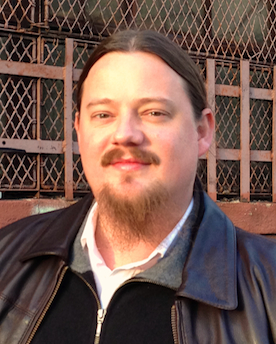
The Center for Ethnomusicology congratulates Columbia Ethnomusicology PhD candidate
Adam Kielman,
who has won three prestigious prizes for papers presented at academic
conferences, in addition to a major research fellowship (Fulbright DDRA)
for his work in China.
The prizes awarded to Mr. Kielman include:
The Hewitt Pantaleoni Prize
-- Awarded by the Mid-Atlantic Chapter of the Society of
Ethnomusicology (MACSEM) for the best student paper presented at their
annual meeting held March 23-24, 2013 in Richmond, VA. Paper title: "
'Sounds like Home': Language and Place in Guangzhou's Modern Folk."
The Martin Hatch Award
-- Awarded by the Society for Asian Music (SAM) for the best student
paper on Asian music presented at the annual Society for Ethnomusicology
national meeting held November 1-4, 2012 in New Orleans, LA. Paper
title: "Xiandai Minyao: 'Modern Folk' in Guangzhou."
The Barbara Barnard Smith Prize
-- Awarded by the Association for Chinese Music Research (ACMR) to
recognize an outstanding student paper in the field of Chinese music,
broadly defined, presented at the annual Society for Ethnomusicology
national meeting held November 1-4, 2012 in New Orleans, LA. Paper
title: "Xiandai Minyao: 'Modern Folk' in Guangzhou."
________________
Mr.
Kielman, who is also an alumnus of Columbia College (EALAC major, LAJPP
performer), has also just successfully defended his doctoral
dissertation proposal, entitled "Sounding Configurations of Difference
in Postsocialist China." He is preparing to depart for field research
in China with support from a Fulbright-Hays Doctoral Dissertation
Research Abroad Fellowship, awarded in September 2013.
Congratulations to Mr. Kielman!
________________
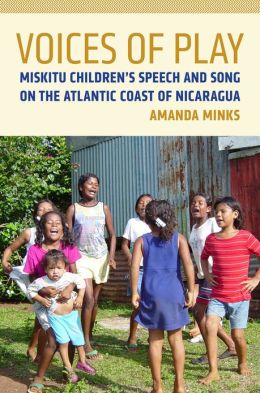
The Center congratulates PhD program alumna Prof. Amanda Minks (University of Oklahoma, PhD in Ethnomusicology, 2006), who has just published Voices of Play: Miskitu Children's Speech and Song on the Atlantic Coast of Nicaragua with the University of Arizona Press' First Peoples: New Directions in Indigenous Studies series (2013).
While indigenous languages have become prominent in global political and educational discourses, limited attention has been given to indigenous children's everyday communication. Voices of Play is a study of multilingual play and performance among Miskitu children growing up on Corn Island, part of a multi-ethnic autonomous region on the Atlantic Coast of Nicaragua.
Corn Island is historically home to Afro-Caribbean Creole people, but increasing numbers of Miskitu people began moving there from the mainland during the Contra War, and many Spanish-speaking mestizos from western Nicaragua have also settled there. Miskitu kids on Corn Island often gain some competence speaking Miskitu, Spanish, and Kriol English. As the children of migrants and the first generation of their families to grow up with television, they develop creative forms of expression that combine languages and genres, shaping intercultural senses of belonging.
Voices of Play is the first ethnography to focus on the interaction between music and language in children's discourse. Minks skillfully weaves together Latin American, North American, and European theories of culture and communication, creating a transdisciplinary dialogue that moves across intellectual geographies. Her analysis shows how music and language involve a wide range of communicative resources that create new forms of belonging and enable dialogue across differences. Miskitu children's voices reveal the intertwining of speech and song, the emergence of "self" and "other," and the centrality of aesthetics to social struggle.
Amanda Minks is Associate Professor in the Honors College and is affiliated with the Department of Anthropology and with the programs in Native American Studies and Women’s and Gender Studies at Oklahoma University. She earned the PhD in Ethnomusicology at Columbia University in 2006.
read more »
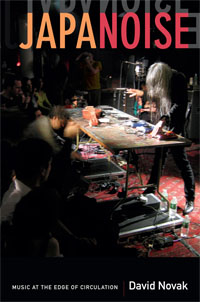
The Center congratulates Columbia Ethnomusicology PhD program alumnus
David Novak. Prof. Novak (UCSB) has just published
Japanoise: Music at the Edge of Circulation (Duke University Press, 2013).
Visit the Japanoise websiteNoise, an underground music made through an amalgam of
feedback, distortion, and electronic effects, first emerged as a genre
in the 1980s, circulating on cassette tapes traded between fans in
Japan, Europe, and North America. With its cultivated obscurity,
ear-shattering sound, and over-the-top performances, Noise has captured
the imagination of a small but passionate transnational audience.
For
its scattered listeners, Noise always seems to be new and to come from
somewhere else: in North America, it was called "Japanoise." But does
Noise really belong to Japan? Is it even music at all? And why has Noise
become such a compelling metaphor for the complexities of globalization
and participatory media at the turn of the millennium?
In Japanoise,
David Novak draws on more than a decade of research in Japan and the
United States to trace the "cultural feedback" that generates and
sustains Noise. He provides a rich ethnographic account of live
performances, the circulation of recordings, and the lives and creative
practices of musicians and listeners. He explores the technologies of
Noise and the productive distortions of its networks. Capturing the
textures of feedback—its sonic and cultural layers and vibrations—Novak
describes musical circulation through sound and listening, recording and
performance, international exchange, and the social interpretations of
media. read more »
David Novak is Associate Professor of Music at the University of California, Santa Barbara, and earned the PhD in Ethnomusicology in 2006, after which he served as a postdoctoral fellow in Columbia's Society of Fellows.
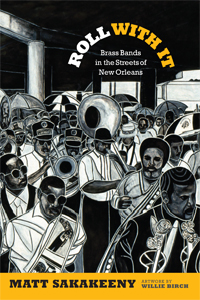 Matthew Sakakeeny
Matthew Sakakeeny (Tulane University) has just published
Roll With It: Brass Bands in the Streets of New Orleans (with artwork by Willie Birch)
Roll With It is a firsthand account of the precarious lives of musicians in the Rebirth, Soul Rebels, and Hot 8 brass bands of New Orleans. The gripping narrative moves with the band members from back street to backstage, before and after Hurricane Katrina, always in step with the tap of the snare drum, the thud of the bass drum, and the boom of the tuba.
Matt Sakakeeny is an ethnomusicologist and journalist, New Orleans resident and musician. An Assistant Professor of Music at Tulane University, he initially moved to New Orleans to work as a co-producer of the public radio program American Routes. He earned the PhD in Ethnomusicology at Columbia University in 2008, where his field research was funded by the National Science Foundation.
Read the introduction to Roll With It on Scribd.
Roll With It also features a supplementary website.
Published by Duke University Press in their Refiguring American Music Series
2013
read more »
The Center for Ethnomusicology's projects to "repatriate" recordings
of collector Laura Boulton, conducted in collaboration with Native
American and Alaska Native communities, are featured in a story in Columbia News, and in a video feature on the Columbia University home page.
read more »